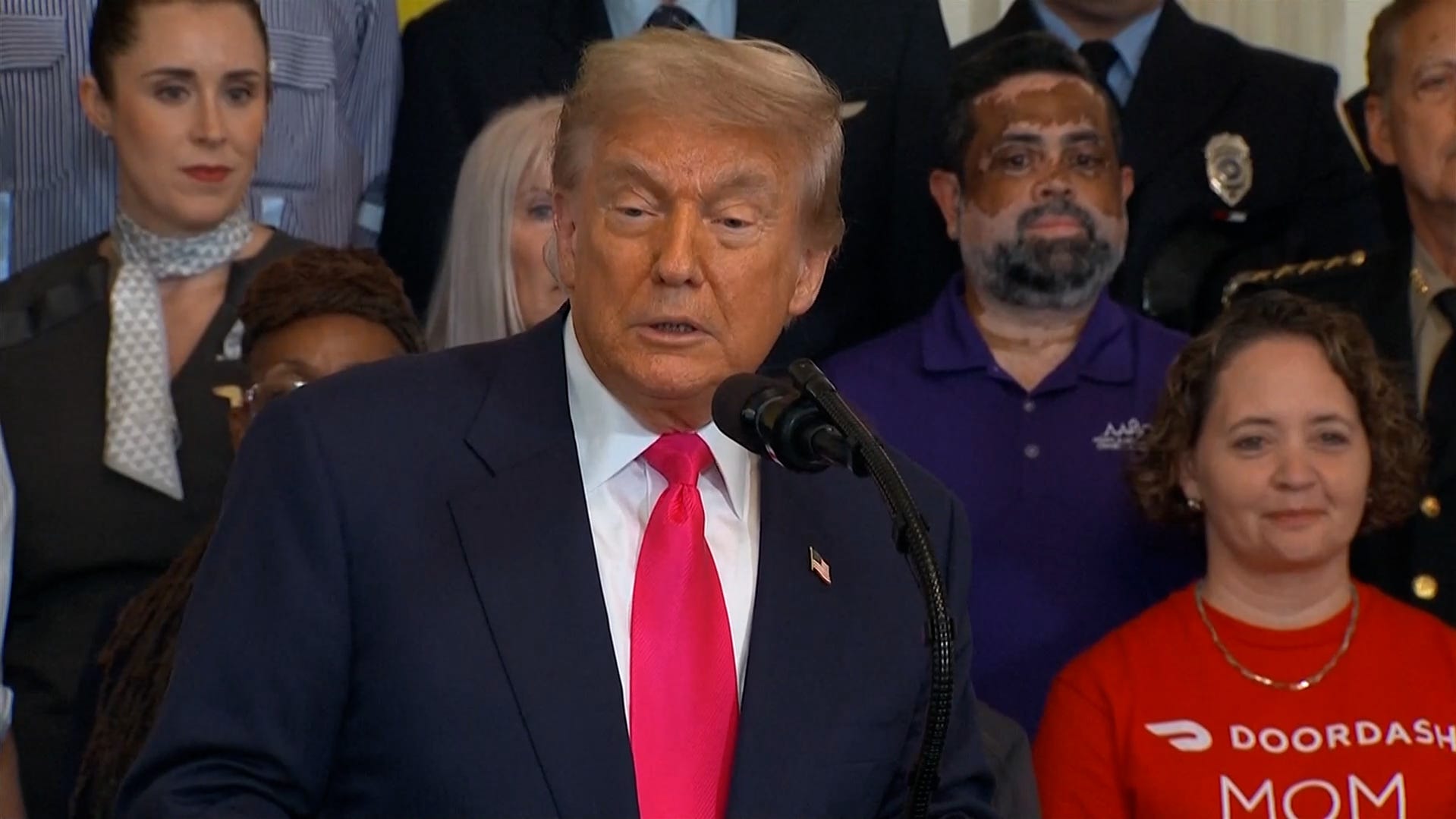Trump, Senate GOP face big setback on tax bill's Medicaid overhaul
Republican provisions to cut Medicaid spending have been a key battleground as the Senate prepares to debate the bill as soon as Friday.

- Senate parliamentarian rules provision to block states from increasing provider taxes on nursing homes is subject to filibuster.
WASHINGTON – President Donald Trump’s major tax, spending and policy legislative package suffered a blow on June 26 when the Senate's parliamentarian ruled that several key Medicaid provisions designed to help cajole nervous Republicans into voting yes can't be included in the bill.
The decision from the chamber's leading rules expert deals with proposed Republican changes to Medicaid, the federal health insurance for lower-income families, which has been one of the main battlegrounds in debate over the legislation.
Trump and fellow Republicans, who aim to pass the bill without counting on any Democratic support, aim to reduce Medicaid spending by requiring work by able-bodied adults and denying access to non-citizens.
But under Senate rules allowing a simple majority approve the bill, all the provisions must directly impact the federal budget.
Parliamentarian Elizabeth MacDonough ruled several Medicaid provisions are subject to filibuster, which would require 60 votes to overcome. The decision is a potential death-knell in a chamber where Republicans outnumber the Democratic caucus 53 to 47.
“Democrats are fighting back against Republicans’ plans to gut Medicaid, dismantle the Affordable Care Act, and kick kids, veterans, seniors, and folks with disabilities off of their health insurance – all to fund tax breaks for billionaires," Sen. Jeff Merkley of Oregon, the top Democrat on the Budget Committee, said in a statement. "Republicans are scrambling to rewrite parts of this bill to continue advancing their families-lose, and billionaires-win agenda, but Democrats stand ready to fully scrutinize any changes.”
Sen. Ron Wyden of Oregon, the top Democrat on the Finance Committee that oversees Medicaid, said the ruling removed $250 billion in projected savings that Republicans had counted on in the bill. He said the parliamentarian made clear the legislation can’t be used to manipulate state-level tax policies.
“Democrats fought and won, striking health care cuts from this bill that would hurt Americans’ walking on an economic tightrope,” Wyden said in a statement. “This bill is rotten to its core, and I’ll keep fighting the cuts in this morally bankrupt bill until the end.”
Parliamentarian's ruling a 'setback' for GOP: senator
The Senate version of Trump’s bill has deeper cuts to Medicaid that had been giving some lawmakers pause, and threatening to derail the legislation. The parliamentarian ruled against a provision in the bill related to taxes on health-care providers that states use to fund Medicaid.
Sen. Thom Tillis, R-North Carolina, was among those who opposed the Senate’s provider-tax language.
“I had some of my own concerns about it from a policy standpoint,” Tillis told Paste BN.
But reducing the amount that the legislation cuts Medicaid could make it less appealing to deficit hawks. Senate GOP leadership has been trying to finalize the bill and set it up for a vote soon, and now must recalibrate.
“I don’t think we leave until we get it done but I’ve said for several weeks it wasn’t going to happen this week,” Tillis said.
Sen. John Kennedy, R-Louisiana, called the decision "a setback."
“We’re gonna have to regroup," Kennedy told Paste BN.
Sen. Ron Johnson, R-Wisconsin, said: “What the parliamentarian did was a little bit of a hand grenade.”
The provisions at stake aimed to:
- Prohibit Medicaid participation to adults and children whose citizenship or immigration status could not be immediately verified.
- Deny Medicaid eligibility to immigrants who are not citizens.
- Reduce federal Medicaid matching funds to 80% from 90% for states that provide coverage to undocumented immigrants.
- Prohibit Medicaid and the related Children’s Health Insurance Program from funding gender-affirming care.
- Block states from increasing provider taxes on nursing homes or intermediate care facilities, which Democrats said could cut health care to millions of people.
Republicans criticized the parliamentarian's decision.
"The Senate Parliamentarian is not elected," Rep. Greg Steube, R-Florida, wrote on social media. "She is not accountable to the American people. Yet she holds veto power over legislation supported by millions of voters."